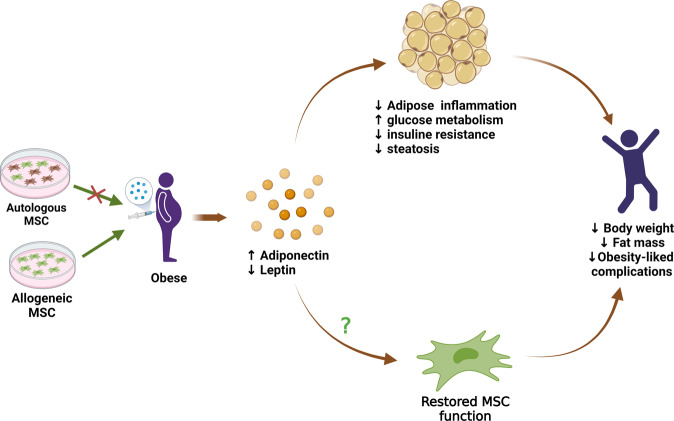Fig. 4. Roles of adipokine rebalancing in MSC therapy for the treatment of obesity.
MSC therapy has been emerging as a promising strategy for counteracting obesity and its related complications. Autologous and allogenic stem cells can be used for MSC therapy; however, obese-derived autologous MSC may be therapeutically ineffective due to compromised potency. Among various benefits, MSC treatment increases adiponectin and reduces leptin levels, thereby re-establishing the adipokine balance in subjects with obesity. Since adipokines exert a variety of effects on inflammation, metabolism, and energy expenditure, normalization of serum adipokines is hypothesized to contribute to other therapeutic benefits of MSC, including improvements in the metabolic profiles of glucose and lipids decrease in adipogenesis, amelioration of adipose tissue inflammation and remodeling, and prevention of obesity-induced metabolic complications. Furthermore, restoration of the adipokine profile may retrain MSC and restore their normal functions, which in turn can reverse the progression of obesity.

